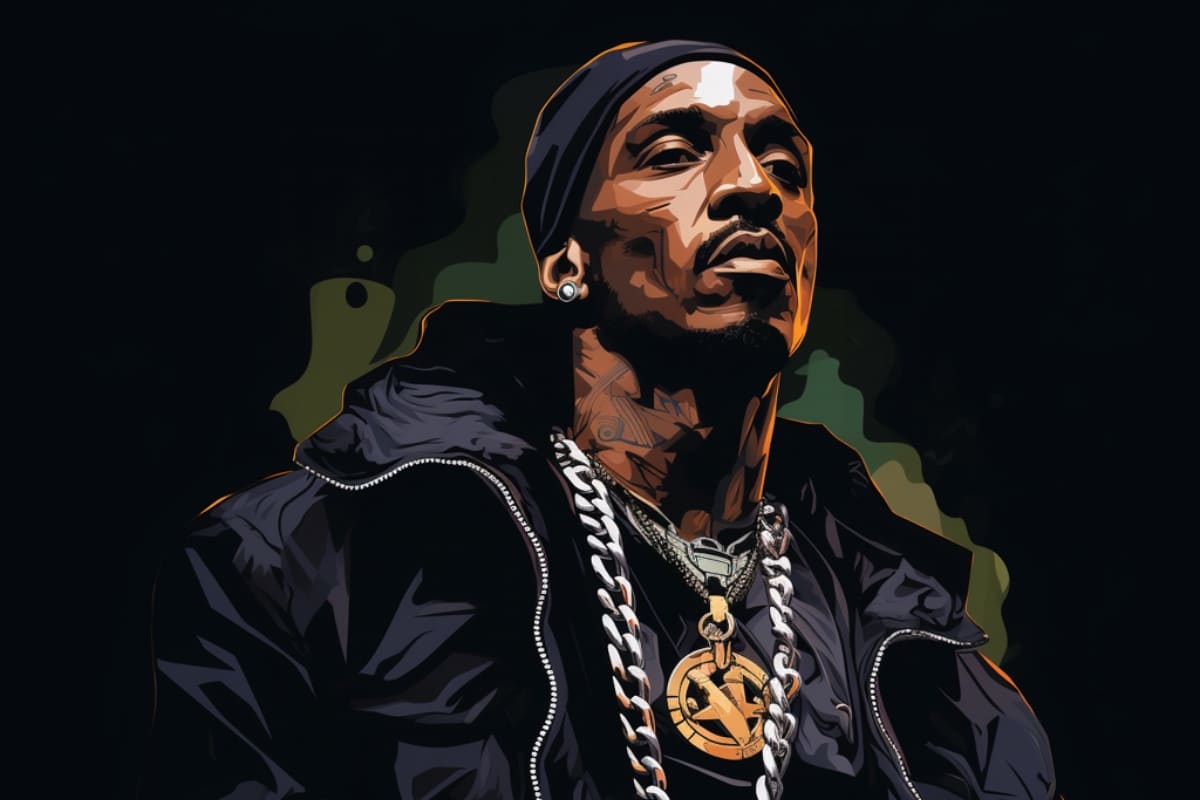The 1980s marked a significant turning point in the world of music, particularly in the hip-hop genre. The 1980 rappers not only shaped the sound of a generation but also influenced fashion, language, and cultural identity. This article delves into the lives and careers of these iconic figures, highlighting their contributions and the legacy they left behind.
The emergence of hip-hop in the late 1970s blossomed into a full-blown movement in the 1980s, with artists using their voices to address societal issues, celebrate their culture, and express their creativity. With the rise of influential rappers, the genre began to gain mainstream recognition, paving the way for future generations of artists. This article will explore the biographies, key achievements, and the cultural impact of some of the most prominent rappers from this vibrant era.
As we navigate through the careers of these influential figures, we will uncover not only their music but also the social and political contexts that shaped their work. Join us on this journey through the lives of 1980 rappers who transformed the music scene and left an indelible mark on popular culture.
Table of Contents
- Biographies of Iconic 1980 Rappers
- Key Achievements and Contributions
- Cultural Impact of 1980 Rappers
- Notable Artists of the Era
- Musical Style and Innovation
- Challenges Faced by 1980 Rappers
- Legacy of 1980 Rappers
- Conclusion
Biographies of Iconic 1980 Rappers
The 1980s introduced us to a plethora of talented rappers whose contributions were vital in shaping the genre. Here are some key figures:
| Name | Birthdate | Notable Works | Impact |
|---|---|---|---|
| Run-D.M.C. | November 14, 1981 | “Walk This Way”, “It’s Like That” | First group to earn a gold record in hip-hop. |
| LL Cool J | January 14, 1968 | “I Need a Beat”, “Mama Said Knock You Out” | One of the first hip-hop superstars. |
| Public Enemy | 1985 | “Fight the Power”, “Bring the Noise” | Known for their politically charged lyrics. |
| Beastie Boys | 1986 | “Licensed to Ill”, “Sabotage” | Blended punk and hip-hop, changing music dynamics. |
Key Achievements and Contributions
Each of these rappers contributed significantly to the evolution of hip-hop:
- Run-D.M.C.: They were pioneers in blending rap with rock music, notably collaborating with Aerosmith on “Walk This Way,” which brought hip-hop to a broader audience.
- LL Cool J: LL is credited with popularizing the use of rap in love songs, paving the way for future artists to explore different themes in their music.
- Public Enemy: Their socially conscious lyrics addressed systemic racism and injustice, making them a voice for the marginalized.
- Beastie Boys: They broke down racial barriers in hip-hop, proving that the genre could appeal to a diverse audience.
Cultural Impact of 1980 Rappers
The cultural impact of the 1980 rappers extended far beyond their music:
- They influenced fashion trends, with oversized clothing, gold chains, and sneakers becoming synonymous with hip-hop culture.
- They shaped the language of youth, introducing slang and expressions that are still in use today.
- They became cultural icons, representing a new generation that valued self-expression and creativity.
Notable Artists of the Era
Beyond the aforementioned, several other artists played crucial roles in the 1980s hip-hop scene:
- Slick Rick: Known for his storytelling abilities and unique style.
- KRS-One: A key figure in the genre’s development, known for his powerful lyrics.
- N.W.A: Brought attention to issues in the inner city with their explicit lyrics.
Rise of Female Rappers
The 1980s also saw the emergence of female rappers, who began to carve out their space in a male-dominated industry:
- MC Lyte: One of the first female solo rappers to gain recognition.
- Queen Latifah: Known for her empowering lyrics and later success in acting.
Musical Style and Innovation
The musical styles of 1980 rappers varied greatly, but several trends emerged:
- Sampling: Many artists utilized samples from funk, soul, and rock music, creating a rich tapestry of sound.
- DJing: DJs played a crucial role in live performances, showcasing skills like scratching and beat mixing.
- Lyricism: The focus on lyrical content shifted, with many artists telling stories or addressing social issues.
Challenges Faced by 1980 Rappers
Despite their success, many rappers faced challenges during this era:
- Stigmatization: Hip-hop was often viewed negatively by mainstream media and society.
- Violence: The genre's association with street culture sometimes led to violence and conflicts.
- Commercialization: As hip-hop gained popularity, some artists struggled with maintaining their authenticity amidst commercialization.
Legacy of 1980 Rappers
The legacy of 1980 rappers is evident in today's music landscape:
- They laid the groundwork for future hip-hop artists and genres.
- Their influence can be heard across various music genres, including pop and rock.
- Their cultural impact continues to resonate, inspiring new generations of artists and fans.
Conclusion
The 1980 rappers were instrumental in shaping not just the music industry, but also the cultural landscape of their time. Their contributions have transcended generations, and their influence is still felt today. Whether through their music, style, or activism, they have left a legacy that continues to inspire and empower.
We encourage you to share your thoughts in the comments below, explore other articles on our site, and continue your journey through the vibrant world of hip-hop.
Thank you for reading! We hope you found this exploration of 1980 rappers insightful and inspiring. Be sure to return for more engaging content.
How To Write On The Granddaughter's Birthday Card: A Heartfelt Guide
Exploring The Wonders Of Jungle Pam: A Dive Into Nature's Beauty
Prayer For Safe Labor And Delivery: Finding Peace In The Journey


